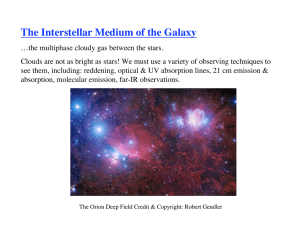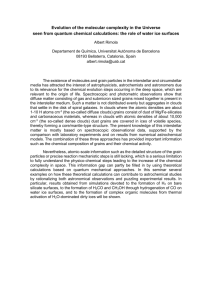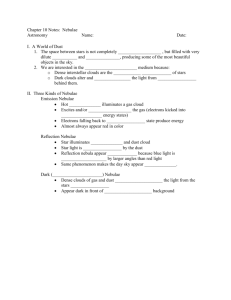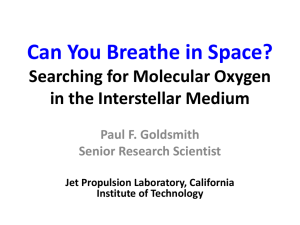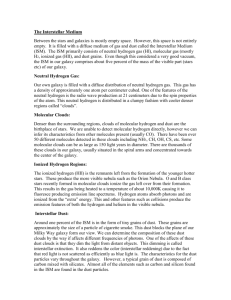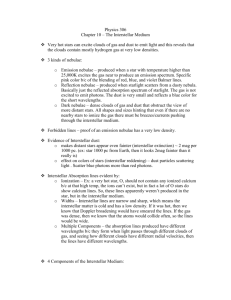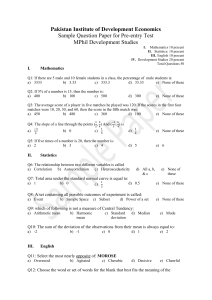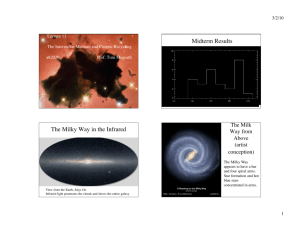Discuss the makeup of dark interstellar clouds
advertisement
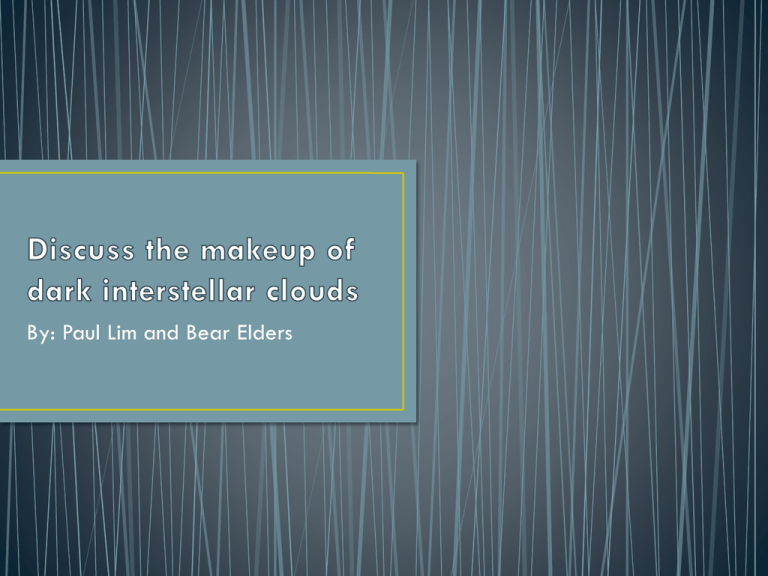
By: Paul Lim and Bear Elders • Most dense and cold concentrations of interstellar gas • 0~100K’ degrees cold • • • • Really dark due to dust particles that extinguishes star lights There are almost all molecules in these dark clouds Often times, it’s joined with luminous nebula, forming new stars Young stars then omit a lot of ultraviolet radiation, lighting up it’s surrounding area. • These clouds are even colder than their surroundings (with temperatures as low as a few tens of kelvins), and thousands or even millions of times denser. • These latter clouds are generally called dense interstellar clouds by researchers, but even these densest interstellar regions are about as tenuous as the best laboratory vacuum. • These clouds bear little resemblance to terrestrial clouds. Most are bigger than our solar system, and some are many parsecs away. • Despite the name, these clouds are made up of primarily gas, just like the rest of the interstellar medium. However, their absorption of starlight is due to the dust they contain. • These are photos of interstellar Dust clouds. Pockets of intense Blackness mark regions where the Dust and gas are especially Concentrated and the light from background Stars is completely obscured. The bright patches within the dark region of dust clouds are foreground objects, emission nebulae and groups of bright stars. • Astronomers first came to understand exactly what a dust cloud is around the 1930s due in part by the study of the optical spectra of distant stars. • The gas absorbs some radiation depending on its temperature, density, and elements. • Because these absorption lines are produced by cold gas, astronomers can easily detect them from a much broader spectrum. • Absorption lines show info about these clouds chemical and physical makeup. This simplified diagram gives us a visual of interstellar clouds between a star and Earth. The one below it show the frequency and intensity of the dust clouds between the star and Earth
